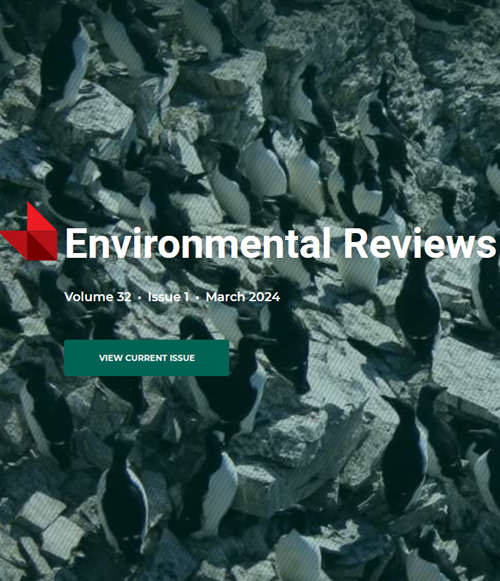Greenhouse gas emissions and carbon sequestration associated with Integrated Crop-Livestock-Forestry (ICLF) systems
IF 5.1
3区 环境科学与生态学
Q2 ENVIRONMENTAL SCIENCES
引用次数: 1
Abstract
Greenhouse gas (GHG) emissions from the Agriculture, Forest, and Other Land Use (AFOLU) sector account for 23% of net global anthropogenic emissions. However, effective conservation agriculture practices can sequester carbon (C) up to one meter in soil depth and vegetation biomass. Integrated Crop-Livestock-Forestry (ICLF) systems attempt to ensure sustainable agricultural production by combining various agricultural, livestock, and forestry production systems. This bibliographic review aims to present and discuss ICLF systems, and their advantages and disadvantages compared to conventional systems, achieving a better understanding of the sources and sinks of greenhouse gasses (CH4, N2O, and CO2). Integrated systems exist in tropical and temperate climates, with different practices, arrangements, designs, and modalities. Intercropping species with different root structures provide more ecological interactions that enhance biodiversity, soil quality, and C sequestration while reducing GHG emissions. Yet, ICLF systems are complex and require technical assistance and support for being implemented, besides an extensive initial investment that increases the cost of operation. A relevant carbon sink in ICLF systems is carbon from tree biomass, where the wood can be used for various purposes. Timber for sawmills and general construction has a longer C immobilization time. Methane from enteric fermentation is the greatest contributor to GHG emissions in livestock and ICLF systems. Nitrous oxide is released primarily from synthetic fertilizers (when applied), manure deposited on pastures, and decomposition of plant residues. Carbon dioxide is emitted to a lesser extent from the application of lime and urea. Many studies do not include all compartments in the C balance and often focus on only one GHG or compartment of C. Accordingly, more studies on the sources and sinks of C and their potential to offset GHG emissions in terms of CO2 equivalent are urged.与作物-牲畜-林业综合系统相关的温室气体排放和碳固存
农业、森林和其他土地利用(AFOLU)部门的温室气体(GHG)排放量占全球人为净排放量的23%。然而,有效的保护性农业做法可以在土壤深度和植被生物量中封存高达一米的碳(C)。作物-畜牧业-林业综合系统(ICLF)试图通过结合各种农业、畜牧业和林业生产系统来确保可持续农业生产。本文献综述旨在介绍和讨论ICLF系统及其与传统系统相比的优缺点,从而更好地了解温室气体(CH4、N2O和CO2)的源和汇。综合系统存在于热带和温带气候,有不同的做法、安排、设计和模式。不同根系结构的间作树种提供了更多的生态相互作用,增强了生物多样性、土壤质量和碳固存,同时减少了温室气体排放。然而,ICLF系统是复杂的,需要技术援助和支持才能实施,此外还需要大量的初始投资,这增加了操作成本。ICLF系统中一个相关的碳汇是来自树木生物量的碳,其中木材可用于各种目的。用于锯木厂和一般建筑的木材具有较长的C固定时间。肠道发酵产生的甲烷是牲畜和ICLF系统中温室气体排放的最大贡献者。一氧化二氮的释放主要来自合成肥料(施用时)、牧场上的粪肥和植物残体的分解。石灰和尿素的施用所排放的二氧化碳较少。许多研究没有包括碳平衡中的所有区室,往往只关注一种温室气体或碳区室。因此,迫切需要更多地研究碳的源和汇及其以二氧化碳当量来抵消温室气体排放的潜力。
本文章由计算机程序翻译,如有差异,请以英文原文为准。
求助全文
约1分钟内获得全文
求助全文
来源期刊

Environmental Reviews
环境科学-环境科学
自引率
3.50%
发文量
45
期刊介绍:
Published since 1993, Environmental Reviews is a quarterly journal that presents authoritative literature reviews on a wide range of environmental science and associated environmental studies topics, with emphasis on the effects on and response of both natural and manmade ecosystems to anthropogenic stress. The authorship and scope are international, with critical literature reviews submitted and invited on such topics as sustainability, water supply management, climate change, harvesting impacts, acid rain, pesticide use, lake acidification, air and marine pollution, oil and gas development, biological control, food chain biomagnification, rehabilitation of polluted aquatic systems, erosion, forestry, bio-indicators of environmental stress, conservation of biodiversity, and many other environmental issues.
 求助内容:
求助内容: 应助结果提醒方式:
应助结果提醒方式:


